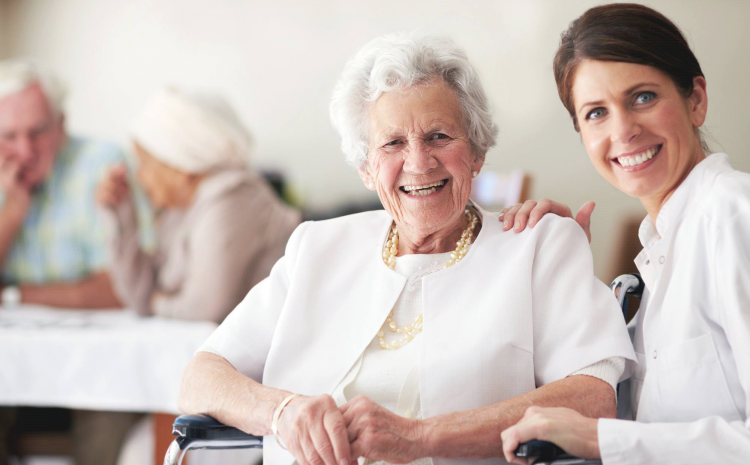The Challenges of Informal Caregiving
The National Alliance for Caregiving and AARP Report for 2020, noted that ‘caregiving by family members has increased by 9.5 million over 2015.’ It also revealed that more Americans are caring for more than one person.
Care provided by family caregivers is a different category from service provided by paid caregivers. In general this type of care is referred to as informal caregiving.
What Is Informal Caregiving?
What is “informal caregiving” or who is an “informal caregiver”? The Centers for Disease Control and Prevention (CDC) explains that “Informal caregivers provide regular care or assistance to a friend or family member who has a health problem or disability.”
Baby Boomers have been called the sandwich generation, mainly because many find themselves taking care of their parents, as well as children and sometimes grandchildren.
When we think of unpaid caregivers, we think of younger persons taking care of older ones as in the case of an adult child taking care of a parent or parents. That is just one segment. There are many spouses who are taking care of their own spouse and parents who take care of their children with disabilities or injuries.
The Joys of Informal Caregiving
Caregivers bear a lot of responsibility for person they care for. It’s a lot of work yet many caregivers express joy and a sense of satisfaction in being able to deliver this personalized care to their loved ones.
Many say that they’re grateful to have the opportunity to give back some of the loving care that they received from their parents when they were children. Others say they cherish the time with their loved one(s) because it gives them an opportunity to do some good for them.
Like anything else, there are two sides to a coin. From research, its been found that the people who have a long-term positive attitude are often impacted by the attitude of those they’re caring for.
When you’re caring for someone who shows appreciation for what you’re doing and recognition for your hard work, it makes it easier to maintain a calm, positive attitude.
On the other hand, if the person being cared for is demanding, hard, and unappreciative, it causes the inconveniences, challenges, and fatigue to become more apparent for the caregiver.
Challenges of Informal Caregiving
There are many challenges for caregivers in general. However, informal caregivers cannot easily walk away from the challenges and so it becomes important to create strategies to deal with many that will arise.
1. Dealing with a spouse with Alzheimer’s Disease: For most of the population, Alzheimer’s disease is generally diagnosed in their 70’s or beyond. More recently it seems that early-onset cases are being diagnosed at an earlier age. Imagine that your spouse is diagnosed at 60 years old. You both probably had plans for what you’d do together when you retire. Depending on how rapidly the disease progresses, those plans are no longer relevant. Your focus has to change.
2. A daughter who resents her mother because she feels she did not treat her fairly or felt her mother did not show her as much love as she showed to others. Yet she now has total responsibility for her care.
3. A son who was a promising athlete and suddenly his health is compromised and now his mother has to take care of him full time.
Each of these situations can create emotional as well as physical stress.
What Should You Do?
1. Ask for help. Avoid feeling that ‘it’s my responsibility’ and you have to do it alone. Help can come from other family members, relatives, and assistance from government sources and organizations.
2. Take breaks during the day and time away from home, when possible. Even if it’s just for a walk in the park or a walk on the beach. You need to make time o de-stress, to “sharpen the saw.”
3. To the extent that their health permits, get your loved ones involved in activities to help prevent them from becoming totally self-absorbed and focused on their poor health.
4. Establish boundaries – Circumstances differ and each situation has to be evaluated according to needs. Set boundaries around what you will and will not do, as well as times when you’re not readily available…even when you’re in the same house.
Taking care of yourself is essential and getting as much rest as possible. When you don’t eat properly and get adequate rest, you’re more likely to be irritable, experience frustration, and suffer from burnout. The bottom line is this: you must take care of yourself while you take care of others. You owe it to yourself and the rest of your family.
The actions and preparations that we make today, affect our tomorrows. What preparations do you want to take so that you are in a better position to deal with a loved one’s diminished health? Do you want to be the caregiver or do you want to orchestrate the care that they need? There are solutions to this problem. The choice is truly yours.
Feel free to reach out to me if you’d like to discover what those solutions are.
Sara Finkelstein is the author of “Wi$dom for Women – Discover the Challenges You Must Overcome to Live the Life and Retirement You Deserve”, available on Amazon. Since 1996, Sara has been helping retiree’s all over South Florida take the “what ifs” out of retirement so they can enjoy Peace of Mind and a Worry Free, “stay retired” retirement! Sara is a Registered Social Security Analyst, Helping Soon-to-Be Retirees with Professional Social Security Planning Strategies, While Creating An Income You Cannot Outlive. She lives in Delray Beach, FL and can be reached at 561-302-5760 or by email: Sara@SignatureAdvisoryGroup.com

Comments are closed